Related Research Articles

Robert Penn Warren was an American poet, novelist, and literary critic and was one of the founders of New Criticism. He was also a charter member of the Fellowship of Southern Writers. He founded the literary journal The Southern Review with Cleanth Brooks in 1935. He received the 1947 Pulitzer Prize for the Novel for All the King's Men (1946) and the Pulitzer Prize for Poetry in 1958 and 1979. He is the only person to have won Pulitzer Prizes for both fiction and poetry.

The British Academy for the Promotion of Historical, Philosophical and Philological Studies is the United Kingdom's national academy for the humanities and the social sciences. It was established in 1902 and received its royal charter in the same year. It is now a fellowship of more than 1,000 leading scholars spanning all disciplines across the humanities and social sciences and a funding body for research projects across the United Kingdom. The academy is a self-governing and independent registered charity, based at 10–11 Carlton House Terrace in London.
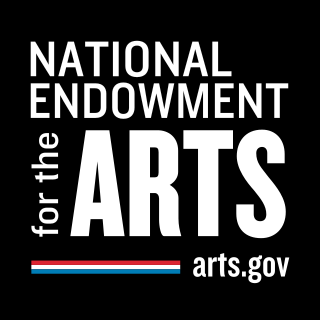
The National Endowment for the Arts (NEA) is an independent agency of the United States federal government that offers support and funding for projects exhibiting artistic excellence. It was created in 1965 as an independent agency of the federal government by an act of the U.S. Congress, signed by President Lyndon B. Johnson on September 29, 1965. It is a sub-agency of the National Foundation on the Arts and the Humanities, along with the National Endowment for the Humanities, the Federal Council on the Arts and the Humanities, and the Institute of Museum and Library Services.
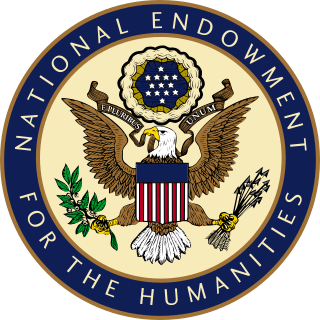
The National Endowment for the Humanities (NEH) is an independent federal agency of the U.S. government, established by the National Foundation on the Arts and the Humanities Act of 1965, dedicated to supporting research, education, preservation, and public programs in the humanities. The NEH is housed at 400 7th St SW, Washington, D.C. From 1979 to 2014, NEH was at 1100 Pennsylvania Avenue, N.W., Washington, D.C., in the Nancy Hanks Center at the Old Post Office.
The National Digital Newspaper Program is a joint project between the National Endowment for the Humanities and the Library of Congress to create and maintain a publicly available, online digital archive of historically significant newspapers published in the United States between 1836 and 1922. Additionally, the program will make available bibliographic records and holdings information for some 140,000 newspaper titles from the 17th century to the present. Further, it will include scope notes and encyclopedia-style entries discussing the historical significance of specific newspapers. Added content will also include contextually relevant historical information. "One organization within each U.S. state or territory will receive an award to collaborate with relevant state partners in this effort." In March 2007 more than 226,000 pages of newspapers from California, Florida, Kentucky, New York, Utah, Virginia and the District of Columbia published between 1900 and 1910 were put online at a fully searchable site called "Chronicling America." As of December 2007, the total number of pages is about 413,000. This further expanded to be 1 million pages in 2009. Funding through the National Endowment for the Humanities is carried out through their "We The People" initiative.

The Sons of the American Revolution (SAR), formally the National Society of the Sons of the American Revolution (NSSAR), is a federally chartered patriotic organization. The National Society, a nonprofit corporation headquartered in Louisville, Kentucky, was formed on April 30, 1889, in New York City. Its objectives are to maintain and extend "the institutions of American freedom, an appreciation for true patriotism, a respect for our national symbols, the value of American citizenship, [and] the unifying force of 'e pluribus unum' that has created, from the people of many nations, one nation and one people."

The American Antiquarian Society (AAS), located in Worcester, Massachusetts, is both a learned society and a national research library of pre-twentieth-century American history and culture. Founded in 1812, it is the oldest historical society in the United States with a national focus. Its main building, known as Antiquarian Hall, is a U.S. National Historic Landmark in recognition of this legacy. The mission of the AAS is to collect, preserve and make available for study all printed records of what is now known as the United States of America. This includes materials from the first European settlement through the year 1876.
The American Council of Learned Societies (ACLS) is a private, nonprofit federation of 75 scholarly organizations in the humanities and related social sciences founded in 1919. It is best known for its fellowship competitions which provide a range of opportunities for scholars in the humanities and related social sciences at all career stages, from graduate students to distinguished professors to independent scholars, working with a number of disciplines and methodologies in the U.S. and abroad.
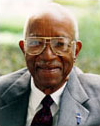
John Hope Franklin was an American historian of the United States and former president of Phi Beta Kappa, the Organization of American Historians, the American Historical Association, and the Southern Historical Association. Franklin is best known for his work From Slavery to Freedom, first published in 1947, and continually updated. More than three million copies have been sold. In 1995, he was awarded the Presidential Medal of Freedom, the nation's highest civilian honor.
The Theodore Roosevelt Association (TRA) is a historical and cultural organization dedicated to honoring the life and work of Theodore Roosevelt (1858–1919), the 26th President of the United States.

The Kentucky Historical Society (KHS) was originally established in 1836 as a private organization. It is an agency of the Kentucky state government that records and preserves important historical documents, buildings, and artifacts of Kentucky's past. The KHS history campus, located in downtown Frankfort, Kentucky, includes the Thomas D. Clark Center for Kentucky History, the Old State Capitol, and the Kentucky Military History Museum at the State Arsenal. KHS is a part of the Kentucky Tourism-Arts and Heritage Cabinet, is fully accredited by the American Alliance of Museums, is a Smithsonian affiliate, and endorses the History Relevance statement. The mission of the KHS is to educate and engage the public through Kentucky's history in order to confront the challenges of the future. The KHS allows the public access to their resources through the online Library catalog along with the in-person Library.

The Institute of Museum and Library Services (IMLS) is an independent agency of the United States federal government established in 1996. It is the main source of federal support for libraries and museums within the United States, having the mission to advance, support, and empower America’s museums, libraries, and related organizations through grantmaking, research, and policy development.” The agency carries out its charge as it adapts to meet the changing needs of our nation’s museums and libraries and their communities. IMLS’s mission is essential to helping these institutions navigate change and continue to improve their services. In fiscal year 2023, IMLS had a budget of $313.58 million. As of 2023, IMLS currently has 70 full-time employees, many of whom still work remotely. In 2022, the employees voted to unionize, joining hundreds of thousands of federal workers who have joined the American Federation of Government Employees (AFGE) to “build power and have a voice at work.”
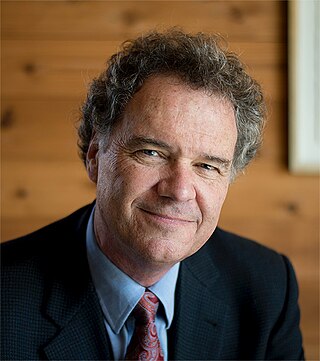
Edward Lynn "Ed" Ayers is an American historian, professor, administrator, and university president. In July 2013, he was awarded the National Humanities Medal by President Barack Obama at a White House ceremony for Ayers's commitment "to making our history as widely available and accessible as possible." He served as the president of the Organization of American Historians in 2017–18.
Chronicling America is an open access, open source newspaper database and companion website. It is produced by the United States National Digital Newspaper Program (NDNP), a partnership between the Library of Congress and the National Endowment for the Humanities. The NDNP was founded in 2005. The Chronicling America website was publicly launched in March 2007. It is hosted by the Library of Congress. Much of the content hosted on Chronicling America is in the public domain.
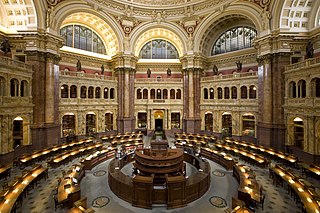
The Library of Congress (LOC) is a research library in Washington, D.C., that serves as the library and research service of the U.S. Congress and the de facto national library of the United States. Founded in 1800, the library is the United States's oldest federal cultural institution. The library is housed in three elaborate buildings on Capitol Hill. It also maintains a conservation center in Culpeper, Virginia. The library's functions are overseen by the Librarian of Congress, and its buildings are maintained by the Architect of the Capitol. The Library of Congress is one of the largest libraries in the world. Its collections contain approximately 173 million items, and it has more than 3,000 employees. Its "collections are universal, not limited by subject, format, or national boundary, and include research materials from all parts of the world and in more than 470 languages."
The Illinois Newspaper Project (INP) began as part of the United States Newspaper Program (USNP), a cooperative effort between the states and the federal government designed to catalog and preserve on microfilm the nation's historic newspaper heritage. The USNP was funded by the National Endowment for the Humanities (NEH) and administered by the Library of Congress, who are currently funding the National Digital Newspaper Program (NDNP), of which the INP is also a part.

Densho is a nonprofit organization based in Seattle, Washington whose mission is “to preserve and share history of the WWII incarceration of Japanese Americans to promote equity and justice today.” Densho collects video oral histories, photos, documents, and other primary source materials regarding Japanese American history, with a focus on the World War II period and the incarceration of Japanese Americans. Densho offers a free digital archive of these primary sources. It also maintains an online encyclopedia of notable Japanese Americans and related topics and an educational curricula.
The Papers of James Madison project was established in 1956 to collect and publish in a comprehensive letterpress edition the correspondence and other writings of James Madison, the fourth president of the United States.

Michael Lowery Gillette is an American author and historian, and Executive Director of Humanities Texas.
Kathryn (Kitty) Kish Sklar is an American historian, author, and professor. Her work focuses on the history of women's participation in social movements, voluntary organizations, and American public culture.
References
- ↑ "Charity Navigator - Rating for United States Capitol Historical Society". Charity Navigator.
- ↑ "Document not Found".
- ↑ "United States Capitol Historical Society Oral History Collection (Library of Congress)". www.loc.gov. Archived from the original on 2007-07-02.
- ↑ "Announcements | H-Net". networks.h-net.org.
- ↑ "United States Capitol Historical Society". The National Endowment for the Humanities.